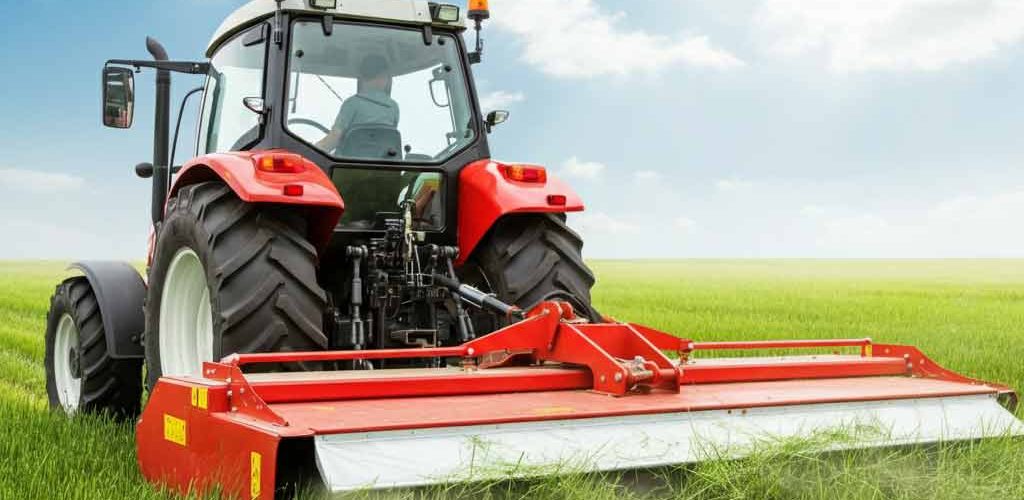
- December 9, 2025
- By: Massey Tractors Nigeria
- in: Agricultural Machinery, Farm Equipment

Maintaining a productive farm involves more than just planting and harvesting crops. A key part of successful farming is controlling weeds and managing overgrown grass. For Nigerian farmers, this challenge can be tackled effectively with the help of a rotary slasher. But to get the most out of this tool, it’s important to match the right slasher with the right tractor and understand its specific uses.
A rotary slasher is a farming implement designed for clearing weeds, brush, and thick grass on farmlands. It attaches to the rear of a tractor and uses rotating blades to cut vegetation efficiently. Whether you’re preparing land for cultivation or maintaining grazing pastures, a rotary slasher is an essential tool for keeping fields in top condition.
Rotary slashers come in various sizes, each compatible with different tractor types. Here’s a simple guide:
The primary job of a rotary slasher is to cut and clear unwanted vegetation. But its usefulness extends beyond that. Here are some specific functions:
Practical Examples from Nigerian Farming
Imagine a farmer in Plateau State preparing land for yam planting. Rainy seasons often lead to quick grass growth, which can slow down manual preparations. A rotary slasher attached to an MF 375 tractor clears the field in hours rather than days, saving precious time.
Similarly, in Ogun State, a livestock farmer may use a heavy-duty rotary slasher with an MF 385 tractor to remove thick grass from grazing areas. This ensures cattle have access to clean, nutritious grass, reducing the risk of diseases caused by harmful weeds.
Rotary slashers save time, reduce labour costs, and enhance farm productivity. They are durable and versatile, capable of clearing farmland, maintaining grazing areas, or even aiding in landscaping projects. When paired with the right tractor, these slashers become an indispensable asset for any farmer.
Choosing the right rotary slasher for your tractor and crop needs can significantly improve your farming operations. Consider the size of your land, the strength of your tractor, and the type of vegetation you need to manage. For Nigerian farmers, the right equipment can lead to higher yields, lower costs, and easier farm maintenance.
Post a Comment